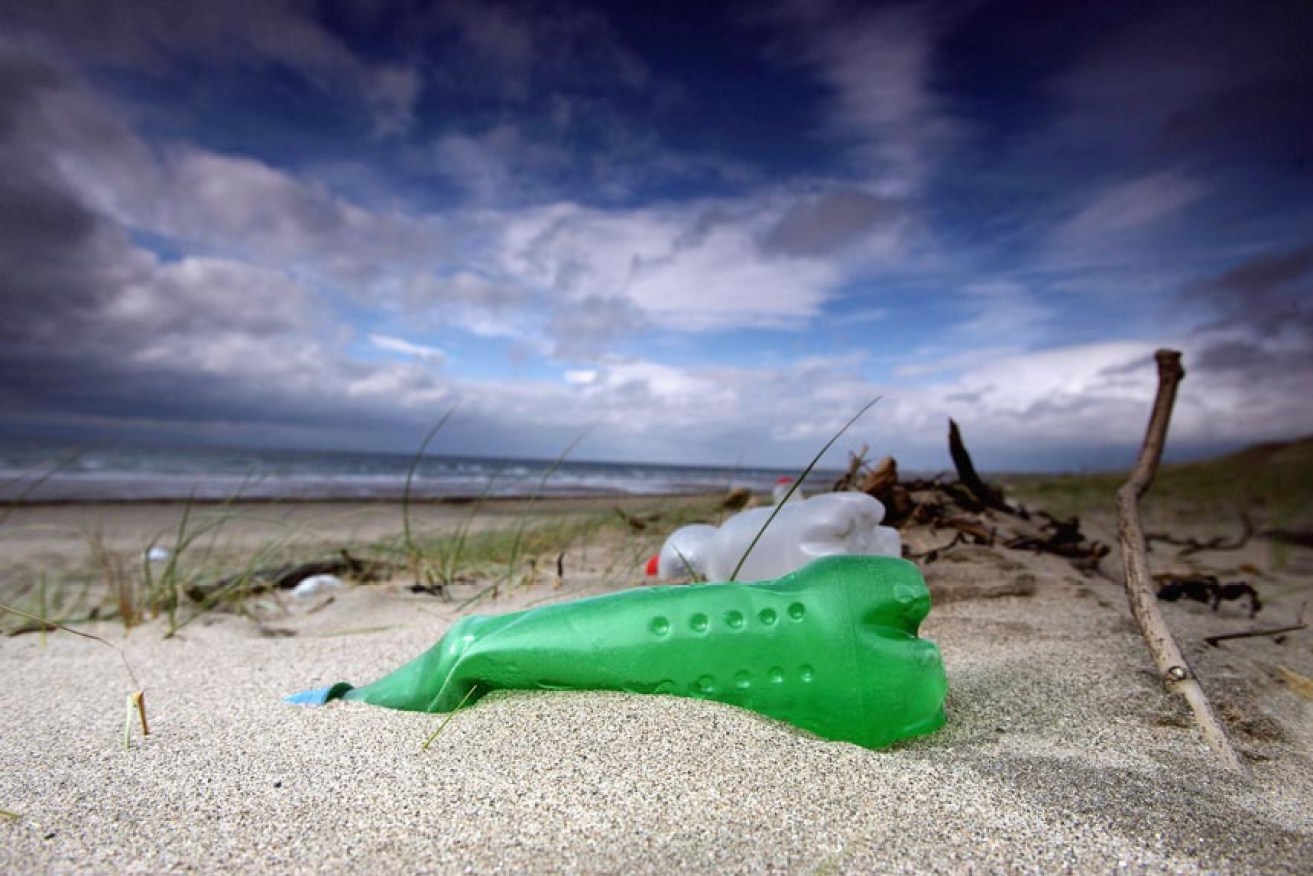‘Deadlier than sharks’: How plastic is choking Aussie seas

Getty
Australian seas contain an invisible potential killer more deadly than any sharks, crocodiles, jellyfish or snakes.
The first in-depth test of its kind in waters around Australia found widespread pollution with micro-plastics – plastic particles less than 5mm long which would go unnoticed by the casual observer.
The research concludes there are on average more than 4000 pieces of plastic per square kilometre of water.
And scientists warn there could be disastrous effects on the food chain – including humans – unless action is taken to cut the amount of plastic being flushed away.
Many of the plastics found contain toxic chemicals which could work their way up the food chain to humans.
“There is increasing evidence that marine animals, ranging from plankton to whales, ingest large amounts of plastics loaded with pollutants, which may then be incorporated into the food chain,” said lead author and PhD student Julia Reisser, from the University of Western Australia’s Oceans Institute.
“We need to decrease plastic waste and toxicity, regulate plastic disposal on land at an international level, and better enforce the laws prohibiting dumping plastics at sea.”
The study, published on Thursday in the PLOS ONE journal, saw scientists from UWA and CSIRO dragnet 57 locations around Australia, plus waters near Fiji.
They found evidence of micro-plastics at 53 sites, a 93 per cent hit rate.
The majority came from broken down polyethylene and polypropylene, which are used to make fishing gear and disposable packaging like water bottles and plastic cups.
The sources of the pollution could be both domestic and international.
High concentrations were found close to Sydney and Brisbane, but also in remote areas where ocean currents converge, like south west of Tasmania and Western Australia’s North West Shelf.
The pollution level is lower than the world’s worst-hit oceans – for now.
The study says the so-called “Great Pacific Garbage Patch”, between the United States and Japan, contains 334,271 pieces of plastic per square kilometre.








